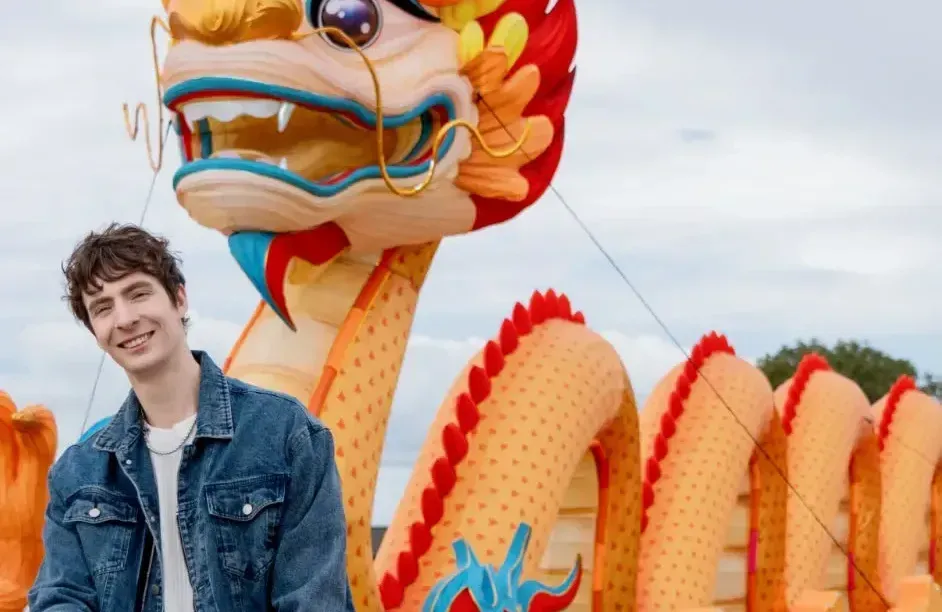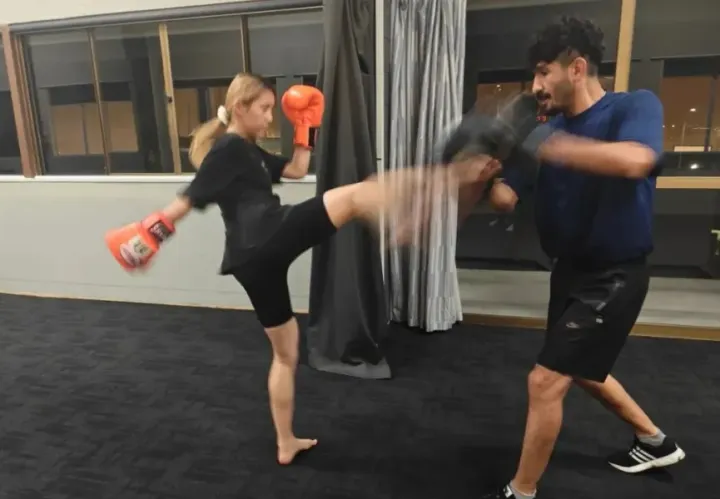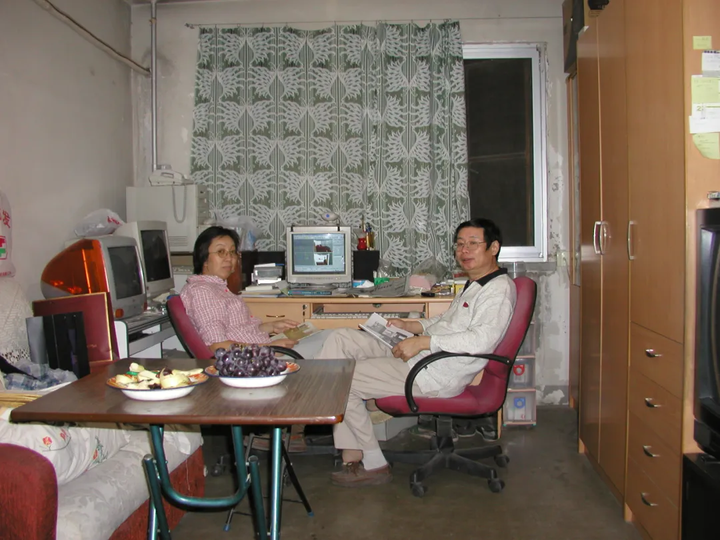Kiwi Singer's 6-Year Journey in China: "If I Have Children, I Will Teach Them Chinese"

Staff Writer: Yima
Image Source: Supplied
Many years ago, a video of a guy playing and singing the Chinese version of "See You Again" went viral online, and Chinese netizens called him "The Foreigner Who Rocks at Singing Chinese Songs."
This singer is from New Zealand—let’s hear his story.

Giving Up Japanese to Learn Chinese
Singing Chinese Songs Made Him Famous
For Laurence Larson, who was born in Auckland’s eastern suburbs, it’s hard to pinpoint exactly when the gears of fate started to turn, but it certainly had something to do with music and Chinese.
At the age of 10, he received his first guitar, sparking his passion for creating and performing music.
In addition to music, Laurence loved watching Japanese anime, which led him to start learning Japanese.
One day, he heard a Chinese song with a beautiful melody, opening the door to the world of Chinese music for him.
After that, he set Japanese aside and decided to learn Chinese because he wanted to "sing in this beautiful language."

After graduating from high school, he enrolled in the University of Auckland’s Chinese and Popular Music program, where he continued to do more covers and create his own songs.
A friend’s mother, who was a vocal teacher specializing in Chinese songs, suggested he participate in singing competitions. His performance of the song "Fairy Tale(童话)" wowed the audience, and through that competition, he saw new possibilities as someone passionate about music and Chinese culture.
He then began recording cover videos, and when he uploaded them to Chinese websites, they garnered millions of views. "New Zealand only has 5 million people, but I got over 10 million views—that’s really crazy!"

It was around that time he received his Chinese name: 罗艺恒 (Luó Yìhéng), meaning "the eternal pursuit of art."
Not Fluent in Chinese
But Invited to Chinese TV Shows
In 2015, Laurence Larson started receiving offers from China.
In September 2015, he participated in the music guessing game show Who Is the Singer(歌手是谁) on Beijing TV. The following year, he competed in the third season of CCTV-3’s original music reality show Chinese nice songs(中国好歌曲), making it to the top 6 in Liu Huan’s team, which marked his rise to fame in Chinese mainstream media.

At that time, his Chinese wasn’t as fluent as it is now. He memorized half of his lyrics in Chinese and the other half in pinyin, and he couldn’t fully understand the judges’ comments—he could only respond with a “thank you.” But this didn’t stop him from being loved by Chinese audiences.
Many people knew him as the blond, blue-eyed foreigner who sang Chinese songs. He was later invited to appear on other variety shows, such as Informal Talks(世界青年说), becoming a familiar face to viewers.
With rave reviews and a packed schedule, the young and ambitious Laurence crossed the Pacific, riding the wave of his music success to China. Starting with mainstream Chinese music programs, his online fanbase grew rapidly, and creative inspiration kept flowing. He wrote several new songs, and soon, he felt a bit "inflated."
Feeling overconfident, Laurence met an industry veteran in Beijing—someone who had helped launch the careers of stars like A-do and JJ Lin.
Laurence played a few of his self-written songs for him, expecting praise, but instead, the man asked with little expression, "What do you want to express with this song?"
This reaction was a wake-up call for Laurence. He realized that he still had a lot to learn in order to create music that truly moved people. It also taught him the importance of staying humble, a lesson that would help him go further in his career.
After the music shows were over, Laurence didn’t receive as many performance opportunities as he had hoped, but he did meet mentors and friends he could learn from and collaborate with. During this time, he discovered more of his interests and talents. Besides performing on stage, he also enjoyed working behind the scenes as a songwriter, joining teams that composed music and theme songs for TV dramas and movies.
In this way, Laurence took root in China through music, living in Beijing for six years.
"To be an artist, it's best to know a bit of everything," he said. "That way, you can have more control and not be led by others." These skills also gave him more confidence to live off his music. Being versatile allowed him to branch out into different fields.

"My First Independent Album Must Have a Chinese Song"
Later, when the pandemic broke out, Laurence found it difficult to return to Beijing after visiting home, so he and his girlfriend moved to Taipei.
Those three years marked the peak of his creativity. With fewer performance opportunities, he had more time to focus on himself. The knowledge and experiences he had accumulated over six years in Beijing finally poured out through his music.
In 2023, his debut solo album WANNA BE WITH YOU was released. He drew inspiration from three years of personal experiences and wrote songs like Love Doesn’t Wait for Anyone.

"Touching people is the most important thing in art," Laurence emphasized in the interview. He valued emotion in his songs over flashy techniques.
During his time in Beijing, Laurence had learned a lot from his predecessors and peers, enhancing his skills, expanding his horizons, and solidifying his desire to release an original album. He spent a long time writing lyrics for the Chinese song that had to be part of his album.
"If I Have Children, I’ll Definitely Teach Them Chinese"
As a singer who gained fame through online platforms, Laurence understood how the system worked, yet he remained rational and clear-headed.
"There aren’t as few foreigners who can sing Chinese songs anymore, but those who can go far are the ones who truly understand and respect Chinese culture." He didn’t want to be superficial, so he kept learning throughout the years.
On the day of the interview, Laurence shared that he was reading The Tao Te Ching(道德经), and before that, he had written songs like Yellow Crane Tower to express his love and understanding of Chinese culture.

Over the years, Laurence’s Chinese had improved significantly from the boy who needed pinyin to read lyrics.
"Translation is an art," he said. Fluent in both languages, he found joy in translating lyrics. It was a romantic act of recreation and a quiet way to connect people from different linguistic and cultural backgrounds.
He also mentioned that if he ever had children, he would definitely teach them Chinese. "Chinese has taken me to far places, and it’s a beautiful and romantic language."
When talking about the challenges second-generation Chinese immigrants face when learning the language, Laurence expressed empathy. He said, "We should give children more encouragement and create opportunities for them to naturally speak Chinese, rather than just lecture them."
As a foreigner, he had received much encouragement when speaking Chinese, but he knew that people were often stricter with second-generation Chinese immigrants, which he felt was unfair to the children.

Becoming an 'Aussie Expat' But Not Forgetting China
Like many Kiwi, Laurence and his wife also moved to Australia earlier this year, settling in Melbourne.
In their first week, they eagerly attended several performances. For Laurence, music had already become a way of life, permeating every aspect of his daily routine.
As a singer-songwriter, he continued to create, drawing inspiration from everyday objects, fan comments, favorite poems, and more. In addition to collaborating with creators from Australia, New Zealand, and China, he also embraced new possibilities, working with music creators from Korea, Singapore, Malaysia, and other countries, hoping to spark new ideas.

Though he is in Australia now, Laurence remains closely connected to China. Recently, he’s been listening to Lexie Liu’s songs and frequently contacts his Chinese friends online.
He also actively supports new musicians. "Music isn’t a zero-sum game," he said. He prefers collaboration over competition, which is one reason why he moved to Melbourne, where he could meet creators from diverse cultures and grow together.
We look forward to hearing more of his work in the future.



